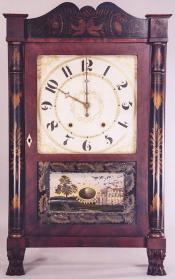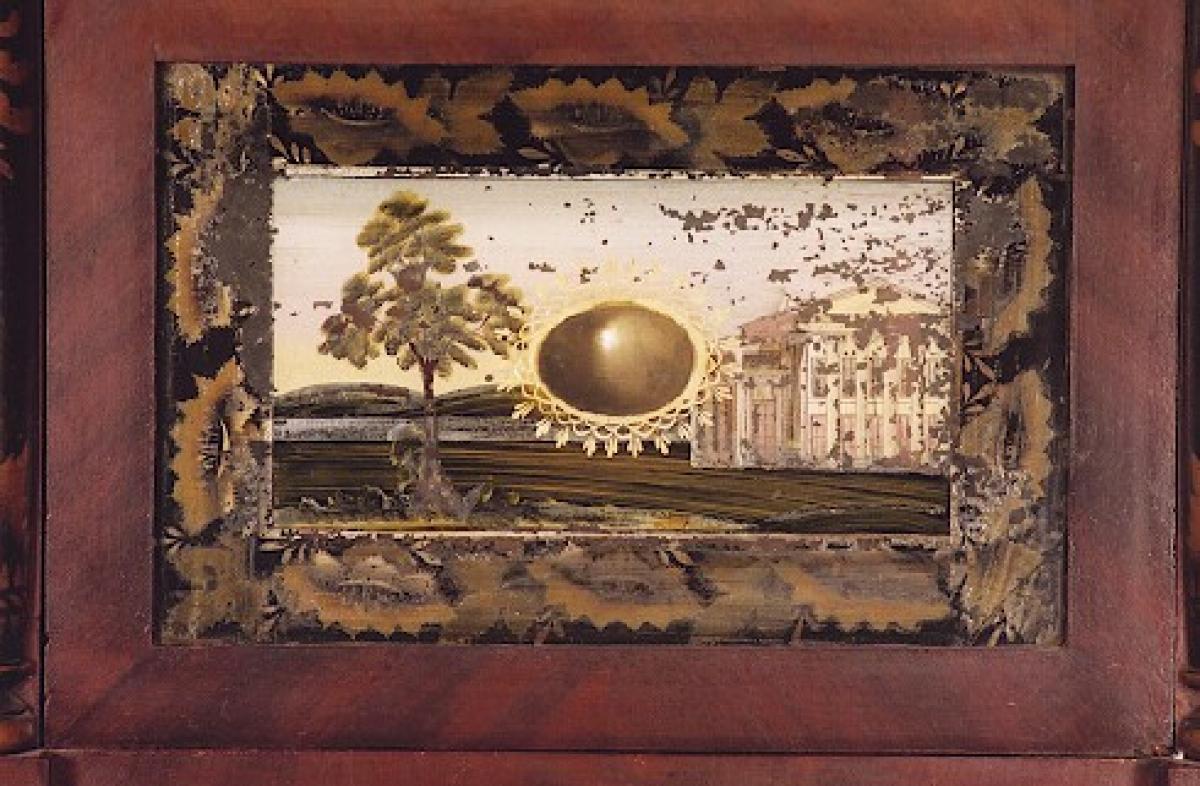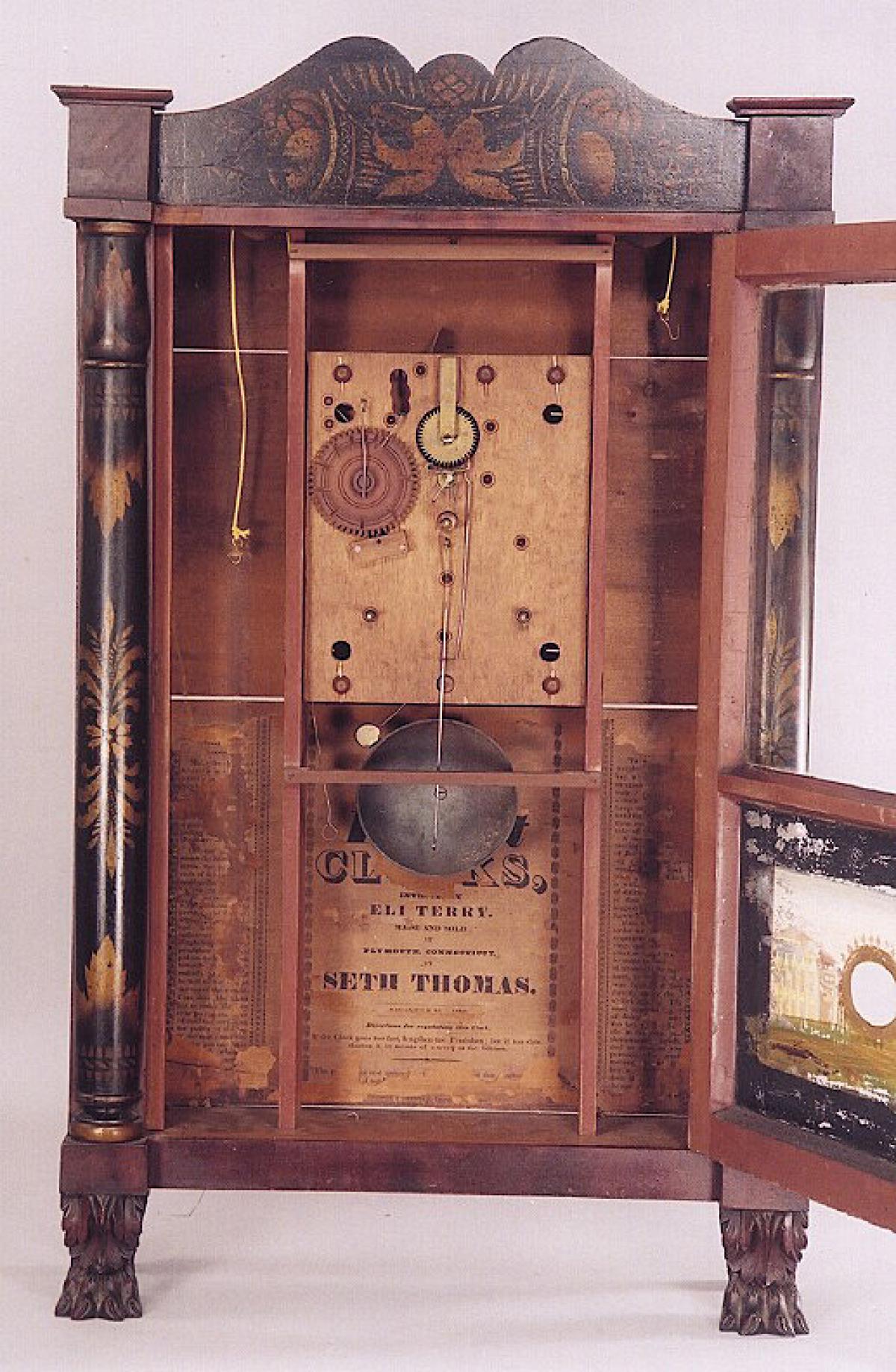Seth Thomas of Plymouth, Connecticut. A transitional shelf clock. LL-66.
This is a clean example of a transitional shelf clock made by Seth Thomas in Plymouth, Connecticut. Inside the case, pasted on the backboard is the Clockmakers’ label that reads, “Patent CLOCKS, / INVENTED BY / ELI TERRY. / MADE AND SOLD / IN / PLYMOUTH, CONNECTICUT / BY / SETH THOMAS.” This label does have some areas of loss.
This transitional mahogany case clock stands on four feet. The back feet are turned. The front feet are carved in the form of animal paws. The case sides are decorated with turned wooden half columns. These are applied to the case. Both these and the splat, located at the top of the case, are painted black and nicely decorated with traditional stencil designs. This artistic work is original to the clock and is in very good condition. The access door is veneered in mahogany and divided into two sections. The upper section, held in place with the original putty, retains its original glass. The lower section is fitted with a reverse-painted tablet. It is also original to this clock. It does have some small areas of loss and a small crack in the lower right corner.
The painted wooden dial is decorated with gilt designs. Arabic numerals mark the hours around the time ring. The hands are original to this clock.
The wooden geared movement is weight-driven and runs for thirty hours on a full wind. It will also strike each hour on a cast iron bell mounted to the backboard of this clock.
This clock, with its dimensions of approximately 32.75 inches tall, 17 inches wide and 4.75 inches deep, is a substantial yet elegant addition to any collection or space.
This clock was made circa 1830.
This transitional shelf clock is inventory number LL-66.
Seth Thomas was born in Wolcott, Connecticut, in 1785. He was apprenticed as a carpenter and joiner and worked building houses and barns. He started in the clock business in 1807, working for clockmaker Eli Terry. Thomas formed a clock-making partnership in Plymouth, Connecticut, with Eli Terry and Silas Hoadley as Terry, Thomas & Hoadley. In 1810, he bought Terry's clock business, making tall clocks with wooden movements. Seth chose to sell his shares in the partnership in 1812, moving in 1813 to Plymouth Hollow, Connecticut, where he set up a factory to make metal-movement clocks. In 1817, he added shelf and mantel clocks. By the mid-1840s, He successfully transitioned to brass movements and expanded his operations by building a brass rolling mill and a cotton factory. In 1853, He incorporated the business but continued to be the majority shareholder. This clock business expanded until it became one of the "BIG Seven" in Connecticut. Their product line had offerings that competed at every price point, from kitchen clocks to precision regulators. Seth Thomas died in 1859. The community of Plymouth Hollow so revered him that they changed the name on July 6, 1875, to Thomaston in his honor. After his death, his son, Aaron, took over the company's leadership. Aaron is credited with increasing the business by adding a number of new case styles and improving production methods. The company went out of business in the 1980s.






